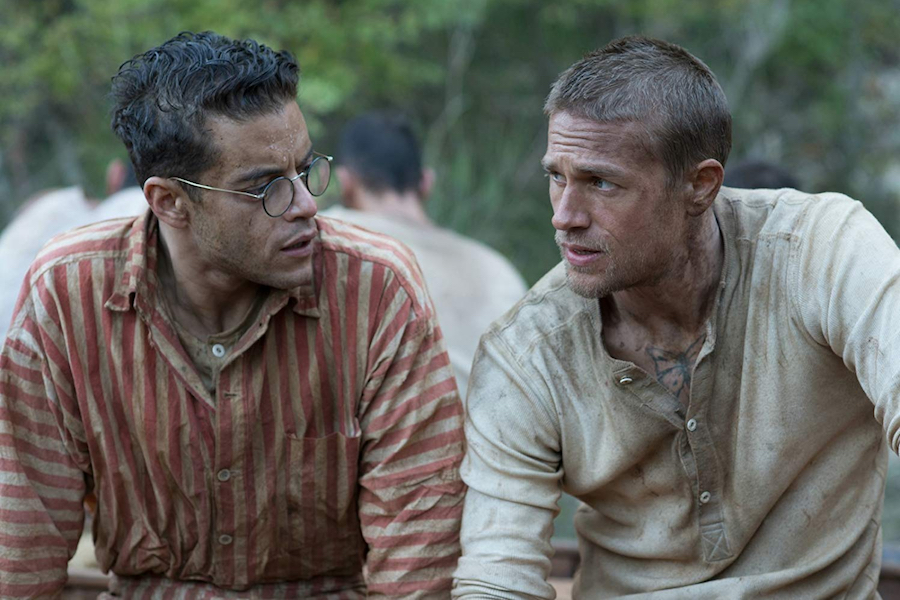
‘Papillon’ Review
It seems like most every remake that comes around begs the question, “Why?” This is especially true when the film being remade is a favorite, such as 1973’s Papillon. The original was directed by Oscar winner Franklin J. Schaffner (Patton, The Planet of the Apes, The Boys from Brazil), and starred two legendary actors, Steve McQueen and Dustin Hoffman. The screenplay was written by Dalton Trumbo and Lorenzo Semple Jr., and was based on the Henri Charrière books Papillon and Banco. Mr. Carriere was, of course, the titular Papillon himself, and though the specifics of his stories have been met with skepticism over the years, he nonetheless delivered some fascinating material.
So why make the film again 45 years later? Well, this is a kinder, gentler version and features two of today’s most popular actors: Charlie Hunnam (“Sons of Anarchy”) and Rami Malek (“Mr. Robot”) as Papillon and Louis Dega, respectively. The screenplay from Aaron Guzikowski (Prisoners) focuses more on the friendship and less on the brutal prison environment. Director Michael Noer made a movie that looks very good and works as an example of loyalty and bonding.
The film opens in 1931 Paris and we witness Papillon (so known because of the butterfly tattoo on his chest) doing what he does…safecracking for a powerful mobster. He seems to be living the good life with his girlfriend (played by Eve Hewson, Bono’s daughter) and they have plans to escape this life of crime – always an ominous sign in movies. Sure enough, he is framed for murder and sent to the penal colony of French Guiana. It’s there that he meets Louis Dega (Malek), a master counterfeiter. Dega is a soft and slight man, and the wad of cash hidden in his nether-regions puts a target squarely on his back. So Papillon’s brawn and need for cash to grease the wheels of his escape, and Dega’s need for protection, make this the match made in heaven (or in this case, hell).
Being a man of eternal optimism, Papillon never loses faith that he will escape, even when the warden (a terrific Vorick van Wageningen from Fincher’s The Girl with the Dragon Tattoo) explains that hope is his enemy. The years spent in solitary confinement rob Papillon of youth and weight, but never hope. A final stint on Devil’s Island reunites the two men who share a bond that only such harsh circumstances could build. Since we know that Henri Carriere wrote the manuscripts for the books in 1969, the ending is known before we start; however it’s the telling of the story that allows us to come to know both Papillon and Dega.
This latest script does a better job of developing the friendship, as well as providing Papi’s past and reason to live. The original nailed a man’s commitment to surviving, while this one makes hope more of a philosophy. Lacking the magic of McQueen, Mr. Noer’s version doesn’t quite compare, but for those who have never seen the 1973 film, this one should prove quite engaging – even if we old-timers don’t buy into the kinder/gentler approach.
